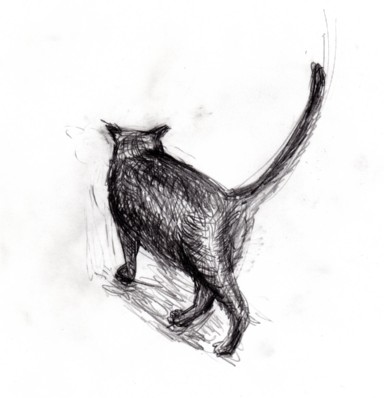An unusually long entry today...
Friday the
Chicago Tribune ran a column by Victor Davis Hanson, who is a fellow at the Hoover Institution, one of those
pressure vessels of willful ignorance. I almost always strongly disagree with what he has to write, but
in this column, the title, "On torture, U.S. must take the high road," showed promise. It went downhill from there.
Hanson's basic thesis, if I understand correctly, is that even though we ought to reject torture, torture is extremely useful, and we harm ourselves by not making use of it. As for international reaction, we shouldn't be concerned about it because Europe and the UN "will fault the United States no matter what it does." (Funny -- that didn't seem to be such a problem ten years ago.) In the particulars of the article, Hanson makes some statements that I find outrageous. Allow me to refute a couple of them.
Hanson writes:
Contrary to popular belief, throughout history, torture has brought results -- either to gain critical, sometimes lifesaving, intelligence or more gratuitously to obtain embarrassing confessions from terrified captives.
I'll side with the popular beliefs. Hanson, talking out of both sides of his mouth, eventually comes out in favor of the McCain anti-torture proposal. But his premise here contradicts McCain. The same day Hanson's article ran,
NewsHour on PBS ran a clip of McCain saying the following: "First, subjecting prisoners to abuse leads to bad intelligence because under torture a detainee will tell his interrogator anything to make the pain stop." In other words, torture produces
compliance rather than
information. McCain, who was himself tortured in Vietnam, ought to know.
Hanson goes on to say:
There is also a danger that once we try to quantify precisely what constitutes torture, we could, in the ensuing utopian debate, define anything from sleep deprivation to loud noise as torture.
Now this really strikes me as an odd thing to say, because in most of the world (but apparently not here), the question has pretty much been settled that both
sleep deprivation and
loud noise (see Ireland v. UK, 1978) can be considered instruments of torture.
We have all experienced tiredness, and we have all experienced loud noises, so I think some people have a harder time imagining the circumstances where these can qualify as torture. When I talk about sleep deprivation, I'm not talking about the alarm clock waking you up at 5:00 a.m. -- I'm talking about not being allowed to sleep at all for days on end. The current revision of the Wikipedia page on this subject states:
Sleep deprivation is sometimes used as an instrument of torture ... [It] is highly unhealthy and should not be attempted under free will. Lack of sleep may ... result in ... hallucinations, nausea, psychosis, and eventually death.
Likewise, with respect to loud noise, I'm not talking about listening to
Limbaugh with the radio turned up (as painful as some may find that). Let's take a look at the Wikipedia entry for
Decibel. There you'll find a table that, like every other acoustic decibel table I've seen, has a line for "threshold of pain" at about 130 dB. Sound levels at 150 dB, representing a ten-fold increase in acoustic intensity, will actually start to destroy your organs. But even
prolonged exposure to levels of 90 dB, a one-hundred-fold decrease in acoustic intensity from the pain threshold, will cause deafness. In addition, loud noises can be used to prevent sleep.
If there is a saving grace to Hanson's article, it is that he ends up, in the final paragraph, endorsing McCain's anti-torture proposal as a "reaffirmation of our country's ideals." If only he devoted a few more column-inches to elaborate on that, because these days it seems that a short treatise on
human rights would serve the public well.

